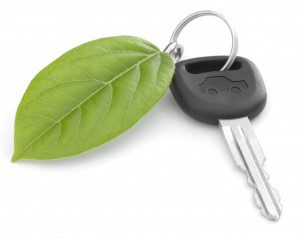By Tara Gould
Guest Writer for Wake Up World
The car industry is one of the worlds most polluting sectors. Vehicle manufacturers usually cease production on parts ten years after a new model is offered for sale, thereby encouraging people to buy a new car, and scrap the old one, when the parts supply runs out. Additionally, modern vehicles with complicated electronics are not designed for longevity, or for easy fixes.
It’s hard to live without a car, and most of us are concerned with the carbon footprint associated with carbon emissions whilst driving. However, tank-to-wheel fuel consumption is only part of the picture. A huge amount of the environmental impact of buying a car is not in the driving, but the manufacture, infrastructure and scrapping of vehicles.
There is a considerable amount of data to support the theory that keeping, caring for and restoring or fixing the same car for 20, 30 or even 60 years has much less of an environmental impact even than buying a new, so called ‘green’ car.
I contacted the Environmental Transport Association (UK) and their spokesperson had this to say:
“As consumers slowly become aware of car emissions, the environmental cost of car manufacture remains almost entirely overlooked. Although progress continues to be made by car manufacturers in terms of the amount of energy and water they use, and the amount of their waste that goes to landfill, these factors continue to have a significant impact on the ‘lifetime’ environmental impact of cars.”
[pro_ad_display_adzone id=”110028″]
The ETA went on to say that, according to recent industry research, even before the average car leaves the showroom it is responsible for 6 tonnes of CO2 emissions.
But while big automotive manufacturers have ceased production of certain models, and their parts, certain clever UK-based businesses have spotted a hole in the market and jumped right in. Companies like VWHeritage, Mini Spares and others sell genuine original spare parts and quality repro parts for classic, vintage and out-of-production cars.
David Ward is the managing director of VW Heritage, and he is keen to support people who are passionate about keeping their beloved vintage VWs cars and buses on the road:
“Classic and vintage VWs were built to last, they might not be perfect, but having survived 30+ years people want to keep hold of them and we want to help them to do that. Classic vehicles are part of everyone’s history; VW Campervans and Beetles have become iconic because so many people have fond memories of them, and for that reason it is something that so many owners cherish.”
Emotionally Durable Design
Recently, I’ve been reading and writing about this throwaway culture we live in, and how we might find ways of progressing out of it. I’ve been looking at Cradle to Cradle design, sustainable design and something called ‘Emotionally Durable Design’, a phrase coined by Professor Jonathan Chapman, who you can read more about here.
Emotionally durable design is basically design that encourages resilient relationships between people and products, so that consumers are less likely to bin products when they become unfashionable, or dull.
Unfortunately, our current business model, which strives to create maximum profit from producing and selling more and more products, does not encourage consumers to keep and care for things. Electrical items are often impossible to repair. Planned obsolescence means shelf life is minimised, while rapid shifts in technology prevent consumers from keeping, and mending.
Look online for a kettle with a ten year or life-time guarantee and it quickly becomes apparent that we are being forced into a wasteful consumer culture that most of us don’t want, or condone.
Companies like VW Heritage, and the other small businesses and start-ups who offer repair services, spare parts and restoration are proving that the current business model is increasingly unsustainable, and consumers are beginning to demand products that are well designed, that last, and that can be fixed.
To finish, I’d like to draw your attention to this inspiring short film that was recently produced by the good folks at madegood.org and posted on theguardian.com. It charts the stories of a number of repair businesses in East London, and beautifully illustrates how the art of repair is still very much alive and well.
Previous articles by Tara:
- Dirty Digging: The Unsavoury Truth Behind the Gold on Your Jeweller’s Shelves
- UK Solar Community Housing: A Gentle But Effective Mutiny
About the author:
Tara Gould is a freelance writer who covers environmental issues, politics, sustainable living and clean energy. She is passionate about spreading the word on ‘conscious’ business, and low impact, sustainable ways of running and powering societies, which are crucial for the health of people and planet. She also blogs at ethical-business.eu and ethicalweddings.com
[pro_ad_display_adzone id=”110027″]







